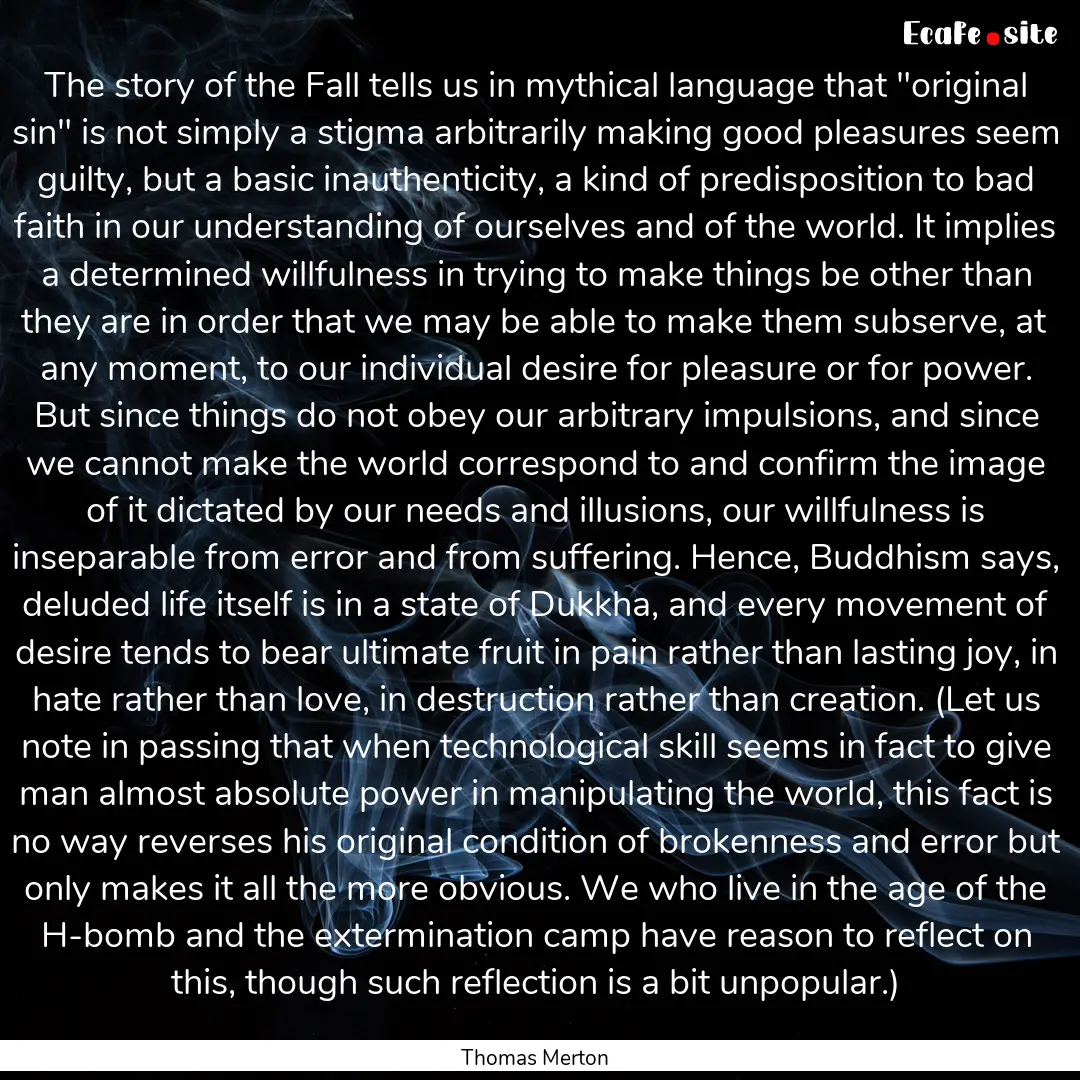
Report, if you have a problem with this page“ The story of the Fall tells us in mythical language that "original sin" is not simply a stigma arbitrarily making good pleasures seem guilty, but a basic inauthenticity, a kind of predisposition to bad faith in our understanding of ourselves and of the world. It implies a determined willfulness in trying to make things be other than they are in order that we may be able to make them subserve, at any moment, to our individual desire for pleasure or for power. But since things do not obey our arbitrary impulsions, and since we cannot make the world correspond to and confirm the image of it dictated by our needs and illusions, our willfulness is inseparable from error and from suffering. Hence, Buddhism says, deluded life itself is in a state of Dukkha, and every movement of desire tends to bear ultimate fruit in pain rather than lasting joy, in hate rather than love, in destruction rather than creation. (Let us note in passing that when technological skill seems in fact to give man almost absolute power in manipulating the world, this fact is no way reverses his original condition of brokenness and error but only makes it all the more obvious. We who live in the age of the H-bomb and the extermination camp have reason to reflect on this, though such reflection is a bit unpopular.) ”

Thomas Merton
From : Zen and the Birds of Appetite



